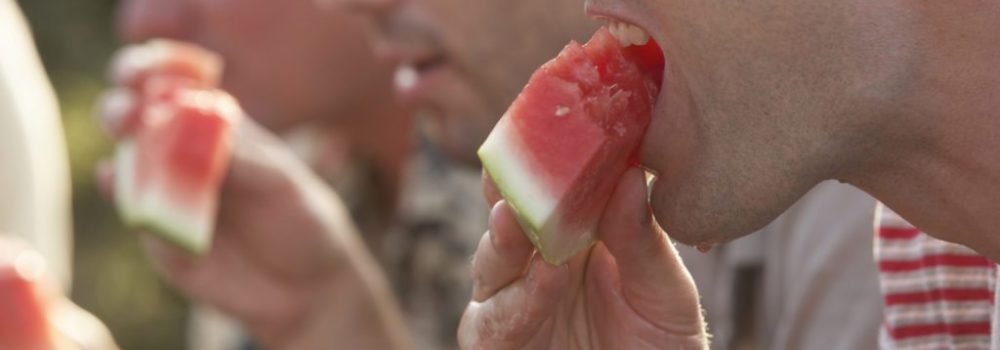Study Finds Chewing May Be the Key to Better Health

While receiving regular dental care from your Newberg dentist offers a number of health benefits for your body, a new study suggests that we can also improve our health by taking a little longer to chew our food.
In the study, researchers from the University of Manchester found that mastication – a technical term for chewing – may actually help protect the body more than just by ensuring you don’t choke on your food. Researchers discovered that the simple act of chewing itself causes the mouth to release a type of immune cell that works to protect the body against infection.
The Healthy Side of Chewing Your Food
Researchers identify cells created by the body’s adaptive immune system called T helper 17 (Th17) that were released during the act of chewing. Th17 cells use antigens to defend the body against potentially harmful pathogens, but do so without disturbing the normal bacteria known to be beneficial to our overall health. Early research had shown that Th17 was produced in the stomach through the presence of gut bacteria, but it wasn’t until recently that researchers noted the production of Th17 in the mouth.
Researchers hypothesize that the production of Th17 is the result of the abrasion and damage the occurs in the mouth due to the force of chewing food. In order to confirm this theory, researcher conducted a test using mice.
In their test, researchers feed newly born mice soft-textured foods, which require the need for less chewing, until they reached the age of 24 weeks. After this time frame, the Th17 cell levels were measured in the mice’s mouths and found to be dramatically reduced. The researchers then attempted to increase the level of physiologic damage in the mice’s mouths by rubbing their gums with a sterile cotton Q-tip. This simulation of more intense chewing led to the increase of Th17 cells.
“The immune system performs a remarkable balancing act at barrier sites such as the skin, mouth, and gut by fighting off harmful pathogens while tolerating the presence of normal friendly bacteria. Our research shows that, unlike at other barriers, the mouth has a different way of stimulating Th17 cells – not by bacteria but by mastication. Therefore, mastication can induce a protective immune response in our gums,” wrote the study’s lead researchers, Dr. Joanne Konkel.
Researchers believe that chewing our food can actually help to better protect us from illness, but also caution that increasing the levels of Th17 in the mouth could carry the risk of gum disease, which has been linked to a variety of chronic health conditions that include cardiovascular disease, stroke, and dementia.
Further Research Needed
Considering the potential risk for gum disease the presence of Th17 could cause, researchers believe further study is needed to determine the long-term impact of more frequent chewing and whether it could make gum disease worse in patients.
They tested this notion once again by feeding newborn mice, but this time with harden food pellets for the same 24-week period. Researchers found that the mice did suffer from increased periodontal bone loss due to chewing-induced physiological damage when compared to the previous study that fed mice softer foods.
However, the results of this second study did not dissuade researchers, as they believe that oral inflammation is linked to the development of a number of disease throughout the body and that understanding this concept can better aid in regulating the oral immune system, potentially leading to the developments for new treatments for disease.
What this study does suggest is that for patients without gum disease, regular dental care from your Newberg dentist and chewing your food make a difference protecting overall health.
